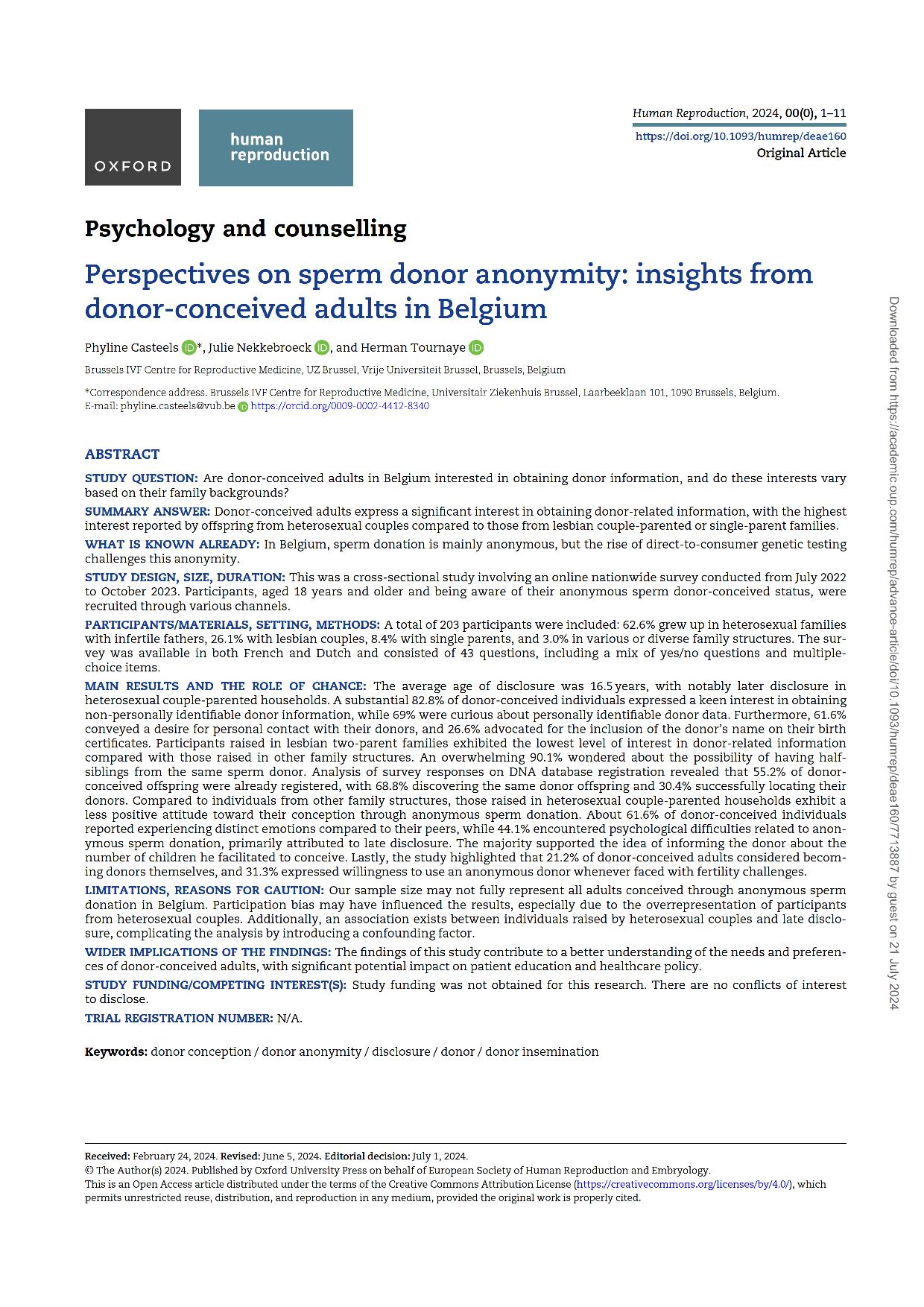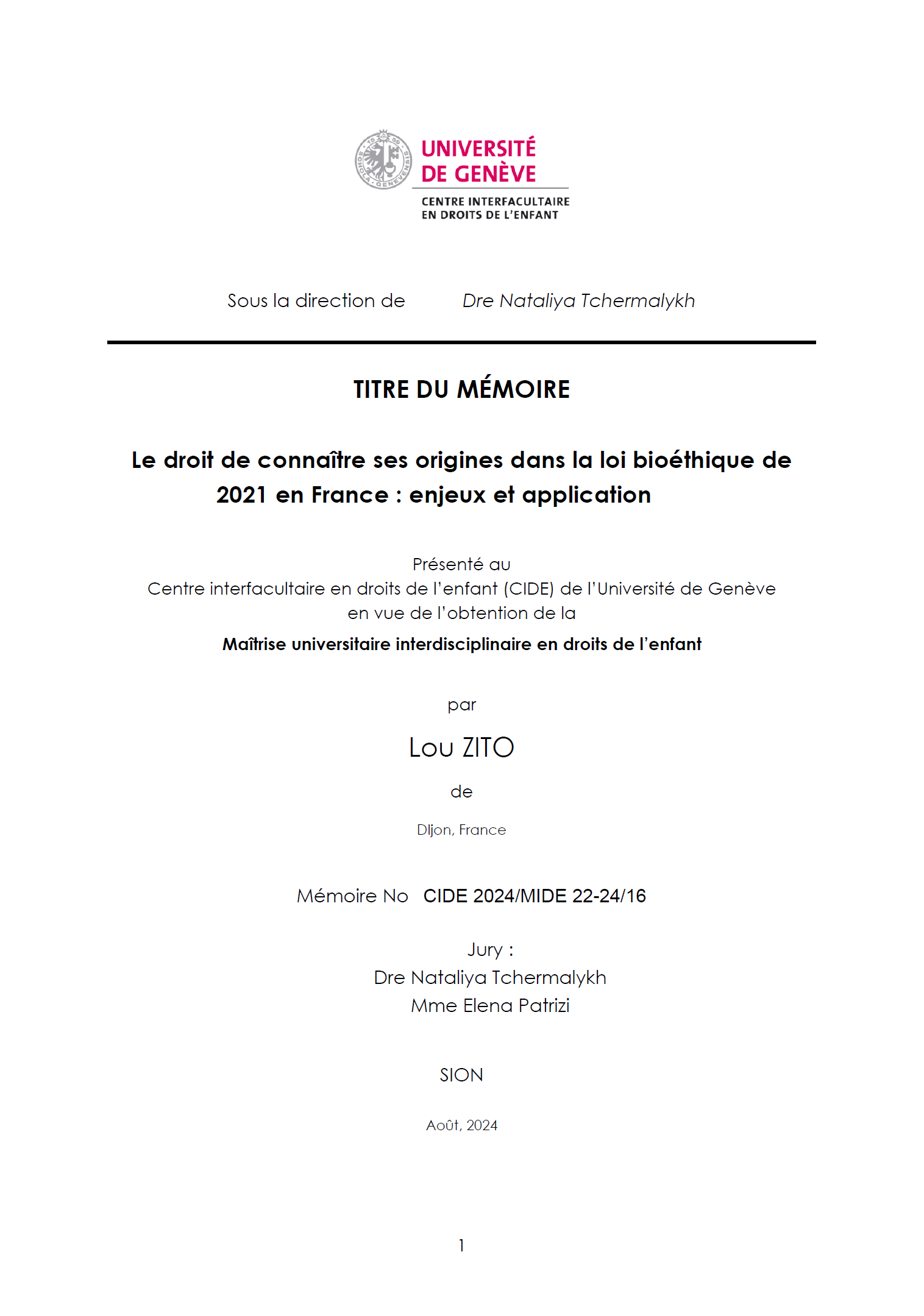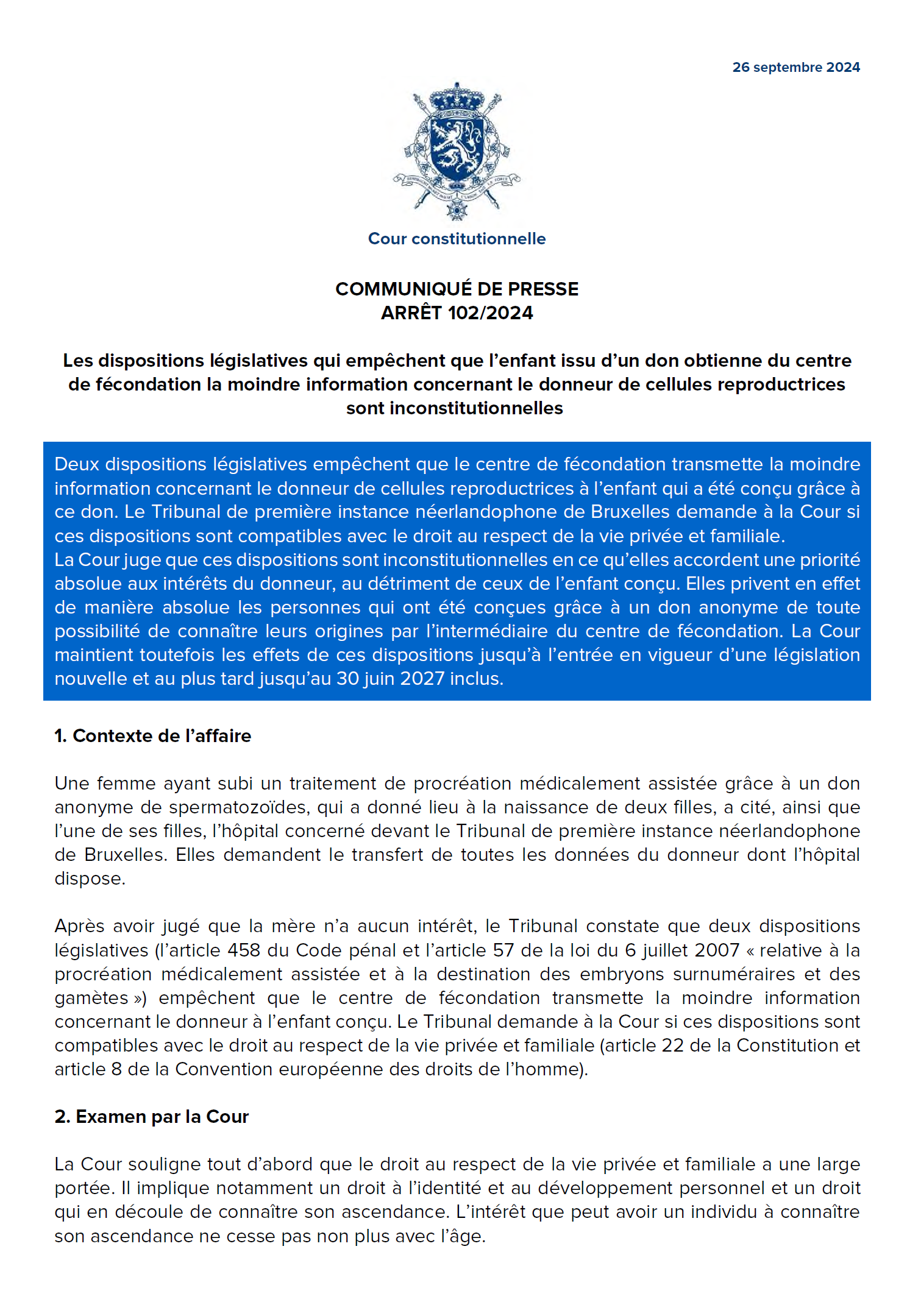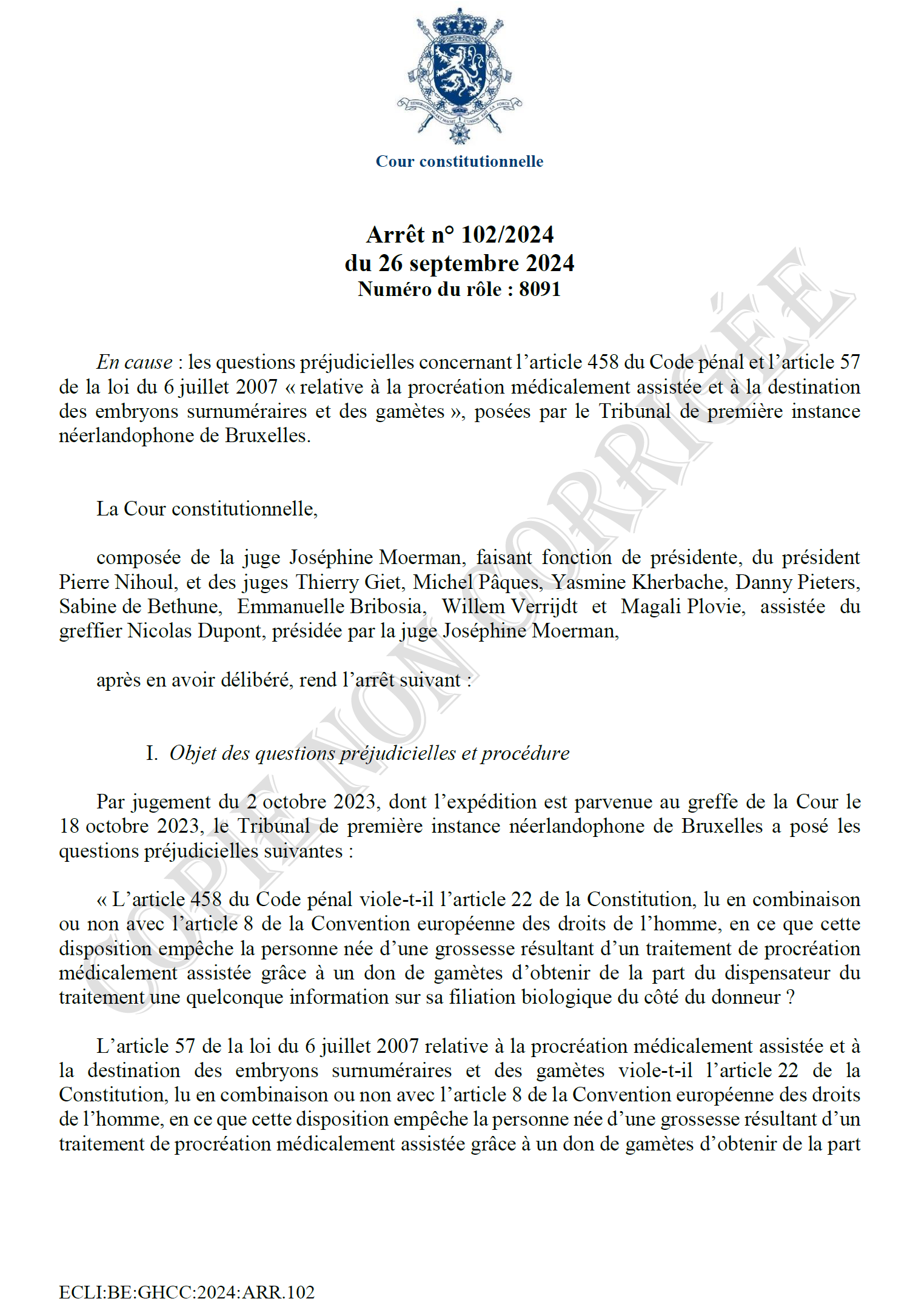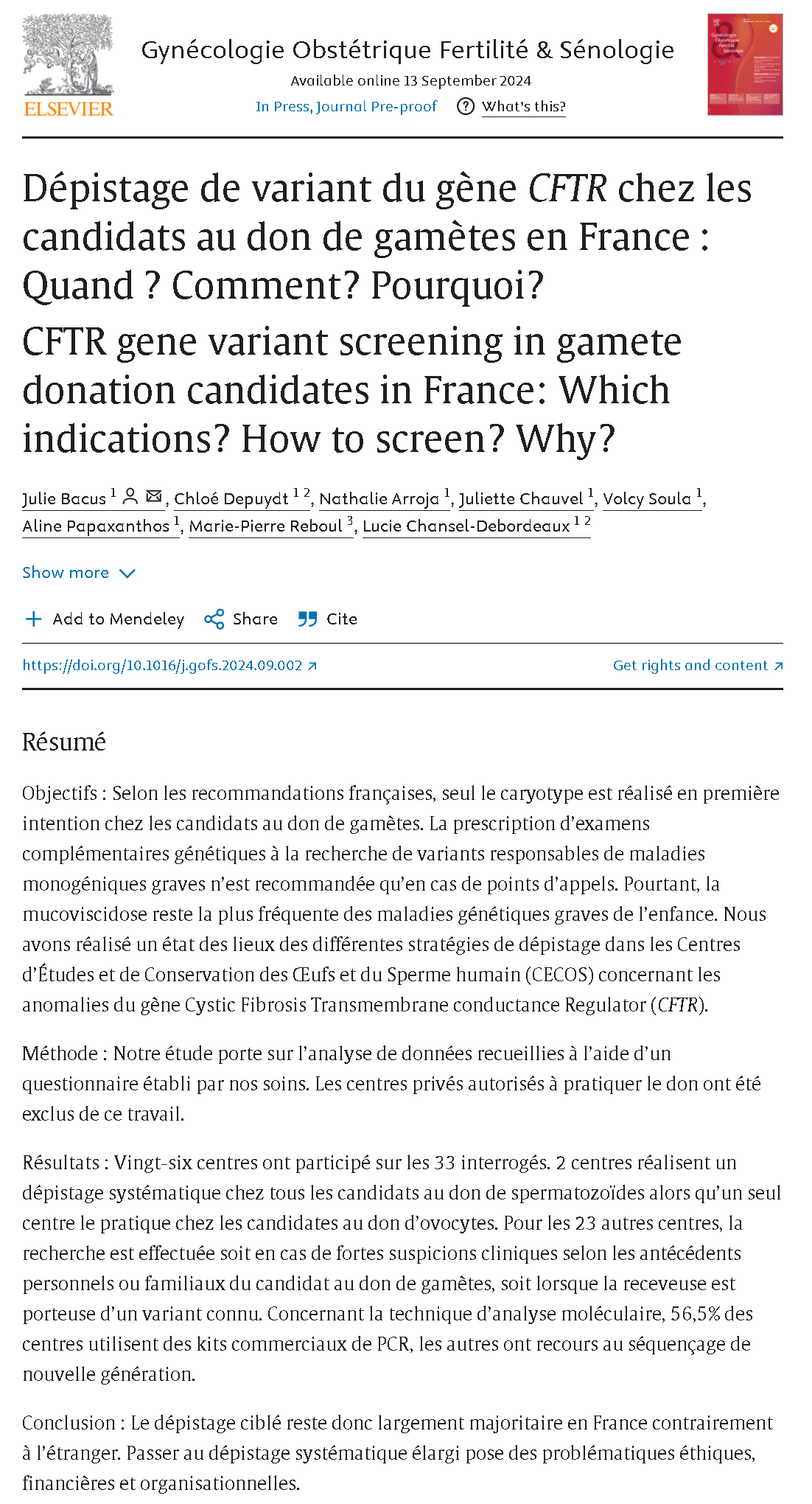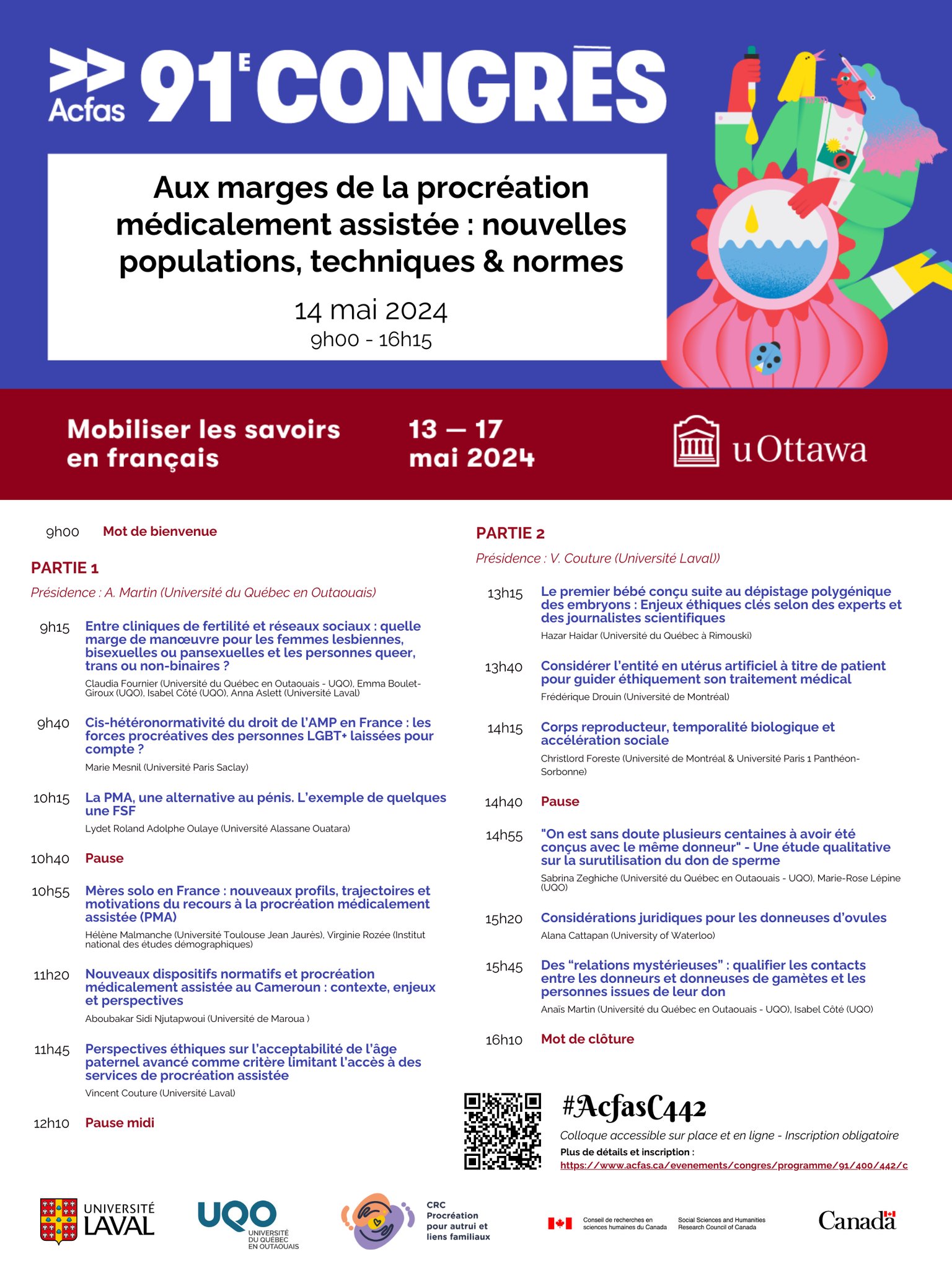Titre : Perspectives on sperm donor anonymity: insights from donor-conceived adults in Belgium
Auteurs : Phyline Casteels, Julie Nekkebroeck, Herman Tournaye
Date : 15 juillet 2024
Lien de l’article :
https://academic.oup.com/humrep/advance-article/doi/10.1093/humrep/deae160/7713887
Résumé
QUESTION D’ÉTUDE
Les adultes conçus grâce à un donneur en Belgique sont-ils intéressés par l’obtention d’informations sur les donneurs, et ces intérêts varient-ils en fonction de leurs antécédents familiaux ?
RÉPONSE SOMMAIRE
Les adultes conçus grâce à un donneur expriment un intérêt significatif pour l’obtention d’informations liées au donneur, l’intérêt le plus élevé étant signalé par les descendants de couples hétérosexuels par rapport à ceux issus de familles monoparentales ou de couples lesbiens.
CE QUE L’ON SAIT DÉJÀ
En Belgique, le don de sperme est en grande partie anonyme, mais l’essor des tests génétiques directs auprès des consommateurs remet en cause cet anonymat.
CONCEPTION, TAILLE ET DURÉE DE L’ÉTUDE
Il s’agissait d’une étude transversale impliquant une enquête nationale en ligne menée de juillet 2022 à octobre 2023. Les participants, âgés de 18 ans et plus et connaissant leur statut de conception par donneur de sperme anonyme, ont été recrutés par divers canaux.
PARTICIPANTS/MATÉRIEL, CADRE, MÉTHODES
Au total, 203 participants ont été inclus : 62,6 % ont grandi dans des familles hétérosexuelles avec des pères infertiles, 26,1 % dans des couples lesbiens, 8,4 % dans des familles monoparentales et 3,0 % dans des structures familiales diverses ou variées. L’enquête était disponible en français et en néerlandais et comprenait 43 questions, dont un mélange de questions oui/non et de questions à choix multiples.
PRINCIPAUX RÉSULTATS ET LE RÔLE DU HASARD
L’âge moyen de la divulgation était de 16,5 ans, avec une divulgation nettement plus tardive dans les ménages hétérosexuels. Un pourcentage important de 82,8 % des personnes conçues par don ont exprimé un vif intérêt pour obtenir des informations non personnellement identifiables sur le donneur, tandis que 69 % étaient curieuses de connaître les données personnellement identifiables du donneur. En outre, 61,6 % ont exprimé le souhait d’un contact personnel avec leur donneur et 26,6 % ont plaidé pour l’inclusion du nom du donneur sur leur acte de naissance. Les participants élevés dans des familles biparentales lesbiennes ont montré le niveau d’intérêt le plus faible pour les informations liées au donneur par rapport à ceux élevés dans d’autres structures familiales. Une écrasante majorité de 90,1 % se sont interrogés sur la possibilité d’avoir des demi-frères et sœurs issus du même donneur de sperme. L’analyse des réponses à l’enquête sur l’enregistrement de la base de données ADN a révélé que 55,2 % des enfants conçus par don étaient déjà enregistrés, 68,8 % ayant découvert le même enfant donneur et 30,4 % ayant réussi à localiser leurs donneurs. Comparativement aux individus issus d’autres structures familiales, les personnes élevées dans des foyers hétérosexuels ont une attitude moins positive à l’égard de leur conception par don anonyme de sperme. Environ 61,6 % des personnes conçues grâce à un donneur ont déclaré avoir éprouvé des émotions différentes de celles de leurs pairs, tandis que 44,1 % ont rencontré des difficultés psychologiques liées au don anonyme de sperme, principalement attribuées à une divulgation tardive. La majorité a soutenu l’idée d’informer le donneur du nombre d’enfants qu’il a aidé à concevoir. Enfin, l’étude a souligné que 21,2 % des adultes conçus grâce à un donneur envisageaient de devenir eux-mêmes donneurs et 31,3 % se sont déclarés prêts à faire appel à un donneur anonyme lorsqu’ils étaient confrontés à des problèmes de fertilité.
IMPLICATIONS PLUS LARGES DES RÉSULTATS
Les résultats de cette étude contribuent à une meilleure compréhension des besoins et des préférences des adultes conçus grâce à un donneur, avec un impact potentiel significatif sur l’éducation des patients et la politique de santé.
Mots-clés
conception par donneur – anonymat du donneur – divulgation – donneur – insémination artificielle par donneur
Citation
Phyline Casteels, Julie Nekkebroeck, Herman Tournaye, Perspectives sur l’anonymat des donneurs de sperme : éclairages d’adultes conçus grâce à un donneur en Belgique, Human Reproduction , 2024 ;, deae160, https://doi.org/10.1093/humrep/deae160
Télécharger le PDF de l’article
